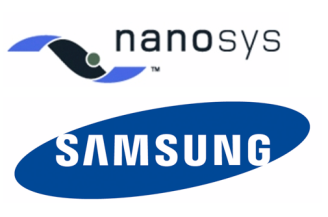
Together, the two companies will develop more efficient thin-film solar panels — despite the recent dampening of the thin-film industry — as well as new, non-toxic quantum-dot crystals that make advanced lighting applications possible. Nanosys has been working on both technologies for a while, but has lately been down on its luck.
[aditude-amp id="flyingcarpet" targeting='{"env":"staging","page_type":"article","post_id":204890,"post_type":"story","post_chan":"none","tags":null,"ai":false,"category":"none","all_categories":"business,enterprise,","session":"D"}']The company made a stir when it first emerged in 2001, and — flying high on generous investments — attempted to go public by 2004. It withdrew the filing when investors soured on its high burn rate. Since then, it has been trimming back its technology licensing business and research operations.
So even though it sounds like Samsung is moving in on the company’s core businesses, it may actually be giving it the air supply it needs to expand into areas it’s been eying, namely computer and television displays and batteries. The recent funding could help Nanosys expand its manufacturing capacity — it’s already on the hunt for a site in the Bay Area.
AI Weekly
The must-read newsletter for AI and Big Data industry written by Khari Johnson, Kyle Wiggers, and Seth Colaner.
Included with VentureBeat Insider and VentureBeat VIP memberships.
For Samsung, backing Nanosys seems like a cost-effective strategy to extend its reach in the energy space — a goal it made a big to-do about last year, claiming it would become the biggest producer of solar panels in the world by 2015. Earlier this year, it said it would funnel $20 billion into its green roadmap, including the hiring of 45,000 new employees.
Samsung is just one of a bevy of Asian electronics giants that have made bold announcements about going green recently. Panasonic, TSMC and Toshiba are all beefing up their cleantech portfolios, especially when it comes to batteries and solar development. In June, TSMC sunk $50 million in thin-film solar startup Stion. In March, Toshiba struck a supply deal with SunPower for 32-megawatts worth of solar panels.
Currently based in Palo Alto, Calif., Nanosys is also backed by Arch Venture Partners, Polaris Venture Capital, Venrock and El Dorado Ventures. These existing investors are providing the additional $10 million in the recent round.
VentureBeat's mission is to be a digital town square for technical decision-makers to gain knowledge about transformative enterprise technology and transact. Learn More
